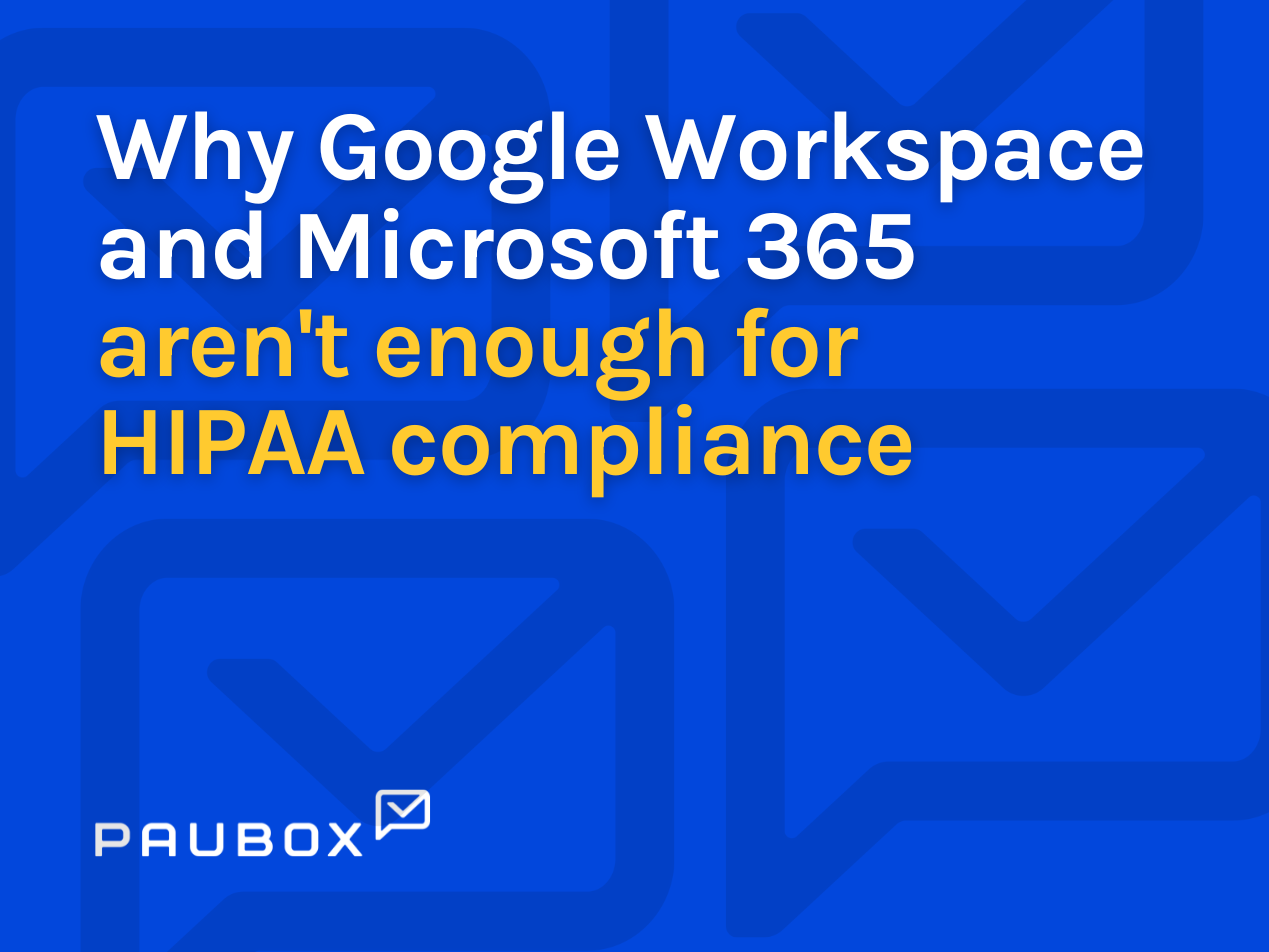
Yes, all aspects of an email that contain protected health information (PHI) must be HIPAA compliant.
Rather than avoiding PHI in email subject lines, covered entities must use a HIPAA compliant emailing platform, like Paubox, which automatically encrypts all outgoing emails, including the subject line.
What is PHI?
The U.S. Department of Health and Human Services (HHS) defines protected health information (PHI) as “all ‘individually identifiable health information’ held or transmitted by a covered entity or its business associate, in any form or media, whether electronic, paper, or oral.”
PHI includes information on:
- “The individual's past, present, or future physical or mental health or condition.
- The provision of health care to the individual.
- The past, present, or future payment for the provision of health care to the individual.”
PHI also includes common identifiers like a patient’s name, address, birth date, and Social Security Number.
Why HIPAA compliance matters for email subject lines
Preventing accidental breaches
Subject lines are visible before an email is opened. So, while HIPAA does not explicitly mention email subject lines, including PHI in an email subject line can inadvertently reveal sensitive information, leading to accidental breaches.
These breaches can result in costly fines of up to $50,000 per violation, legal repercussions, and damage to an organization's reputation.
Upholding a culture of security
Covered entities must ensure HIPAA compliance in their emails, including the subject lines to uphold a culture of security in their organization. When employees take proactive measures to protect PHI, they improve the organization’s defense against potential breaches.
Minimizing risk
Covered entities can use the Expert Determination Method and the Safe Harbor Method to de-identify information. However, de-identified data is still risky if cross-referenced with other databases like social media or public records.
Additionally, de-identified email subject lines may not be specific enough to promote patient engagement, potentially leading to confusion or missed communication. For example, a subject line like "Appointment reminder" doesn't tell the patient which appointment is being referenced.
Instead, covered entities should use a HIPAA compliant emailing platform, like Paubox, which automatically encrypts all outgoing emails, including the subject line. The automatic encryption also eliminates the risk of human error when staff manually encrypt emails.
Go deeper: Why personalized healthcare emails are better
How to create HIPAA compliant email subject lines
Use an encrypted emailing platform
Covered entities must use a HIPAA compliant platform, like Paubox, which offers TLS encryption to protect emails during transit and at rest. Additionally, these platforms can help covered entities monitor and audit their email practices, identifying and addressing potential issues.
Offer ongoing staff training
Covered entities must continuously educate employees on HIPAA regulations, include practical examples of compliant subject lines, and explain the risks of using non-compliant subject lines.
Implement access controls
Role-based access controls restrict email access to authorized employees. So, covered entities can create protocols for handling email correspondence with roles for drafting, reviewing, and sending HIPAA compliant emails.
Develop a breach response plan
Covered entities must create a response plan to address potential PHI breaches. Developing a detailed breach response plan will help protect patient privacy, mitigate data breach impacts, and meet legal and ethical obligations.
FAQs
What is HIPAA?
The Health Insurance Portability and Accountability Act (HIPAA) sets national standards for protecting the privacy and security of certain health information, known as protected health information (PHI).
HIPAA is designed to protect the privacy and security of individuals’ health information and to ensure that healthcare providers and insurers can securely exchange electronic health information.
Who does HIPAA apply to?
HIPAA applies to covered entities, which include healthcare providers, health plans, and healthcare clearinghouses. It also applies to business associates of these covered entities. These are entities that perform certain functions or activities on behalf of the covered entity.
How does encryption help HIPAA compliance?
Encryption converts email content into a secure format that can only be accessed by authorized recipients, preventing unauthorized access and ensuring HIPAA compliance.
Subscribe to Paubox Weekly
Every Friday we bring you the most important news from Paubox. Our aim is to make you smarter, faster.




